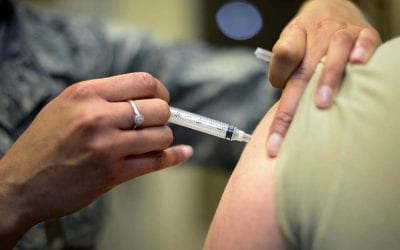The Aircraft Owners and Pilots Association (AOPA) recently asked the two presidential candidates about air traffic control plans and general aviation. As might be expected, John McCain, who actually knows how to fly a plane, and Barack Obama, who has only flown on planes piloted by others have different points of view.
Understanding the air traffic system and our airborne transportation system helps in marshaling federal resources and new tax plans to maintain a robust air network. McCain’s answers to the air traffic questions were specific. Obama mantained the general themes and platitudes that have marked much of his campaign.
Here are answers in the story on Air Traffic Control:
McCain: If I am elected, one of my top transportation priorities will be to modernize the air traffic control system so it can handle the increased traffic that is forecast. The current system cannot efficiently handle these increases. Gridlock in the sky and on the ground at our airports won’t just result in longer delays for airline passengers, but it will also affect general aviation — especially in the busier airspace around our major metropolitan areas. Under such a scenario, it could become very difficult for pilots to use general aviation airports in that airspace, particularly at peak times. In my view, making better use of the airspace won’t benefit just commercial aviation, but general aviation as well.
Obama: General aviation produces over a million jobs in America and is an invaluable part of our economy and the lifestyle of American families across the nation. As president, I will engage the general aviation community in the FAA decision making process and take steps, as I did as a state senator, to ensure that government continues to determine how best to meet the needs of general aviation practitioners.
On FAA funding, McCain has a clear record. Obama does not.
McCain: The FAA reauthorization bills that I supported while chairman of the Senate Commerce Committee contained funding formulas that were designed to ensure that the full financial resources of the Airport and Airway Trust Fund were used to modernize airports and the national airspace system. The bills also included a general fund contribution to the FAA’s budget to pay for agency activities such as providing air traffic control services to the Department of Defense.
Obama: I believe there should continue to be a role for general fund dollars in funding the FAA.
If this national election were only about which candidate the pilot and aviation community felt most comfortable with, John McCain would be the clear choice of those who understand and live in the world of aviation. However, political choices are rarely so simple.
Plus, the president, whoever he may be, has a very limited part in the fashioning of legislation that is needed to finally get the FAA moving into the future and establishing changes to our air traffic control systems that have been being debated for more than a century.
My hope is that a new president can provide leadership to move the political and bureaucratic systems towards a solution to our aging air traffic system. For this to happen, the president must have an interest in the problem. Otherwise, it will be politics as usual, and ATC changes will only come in response to a serious meltdown that would be best avoided.

Charlie Leocha is the President of Travelers United. He has been working in Washington, DC, for the past 14 years with Congress, the Department of Transportation, and industry stakeholders on travel issues. He was the first consumer representative to the Advisory Committee for Aviation Consumer Protections appointed by the Secretary of Transportation from 2012 through 2018.

